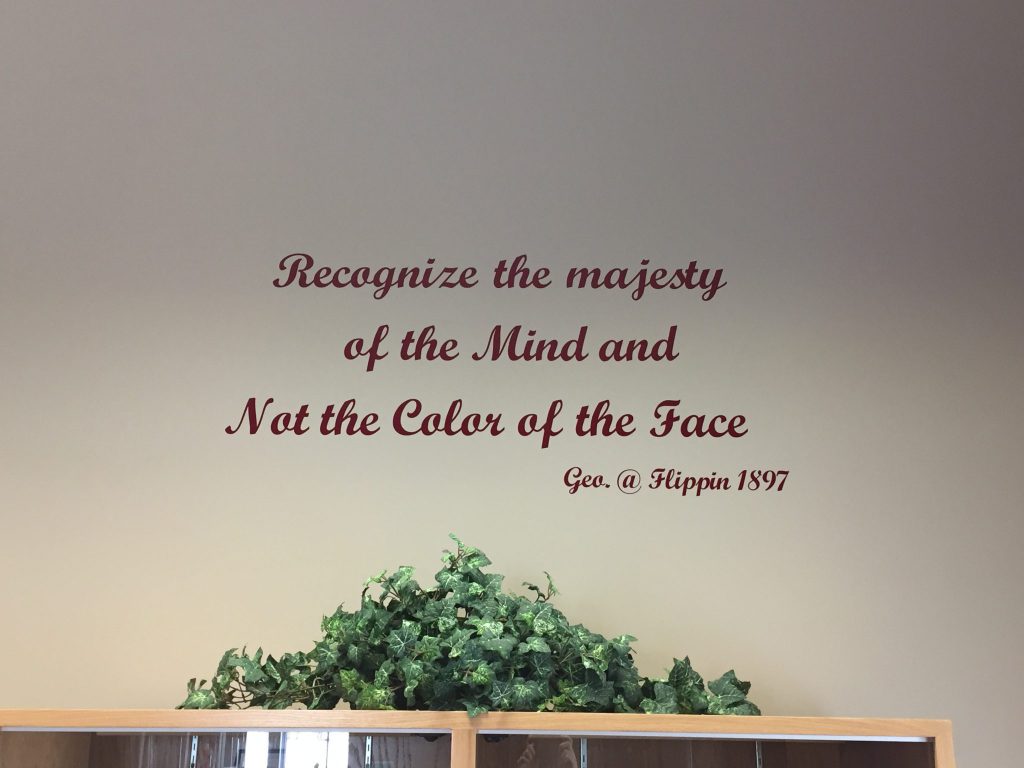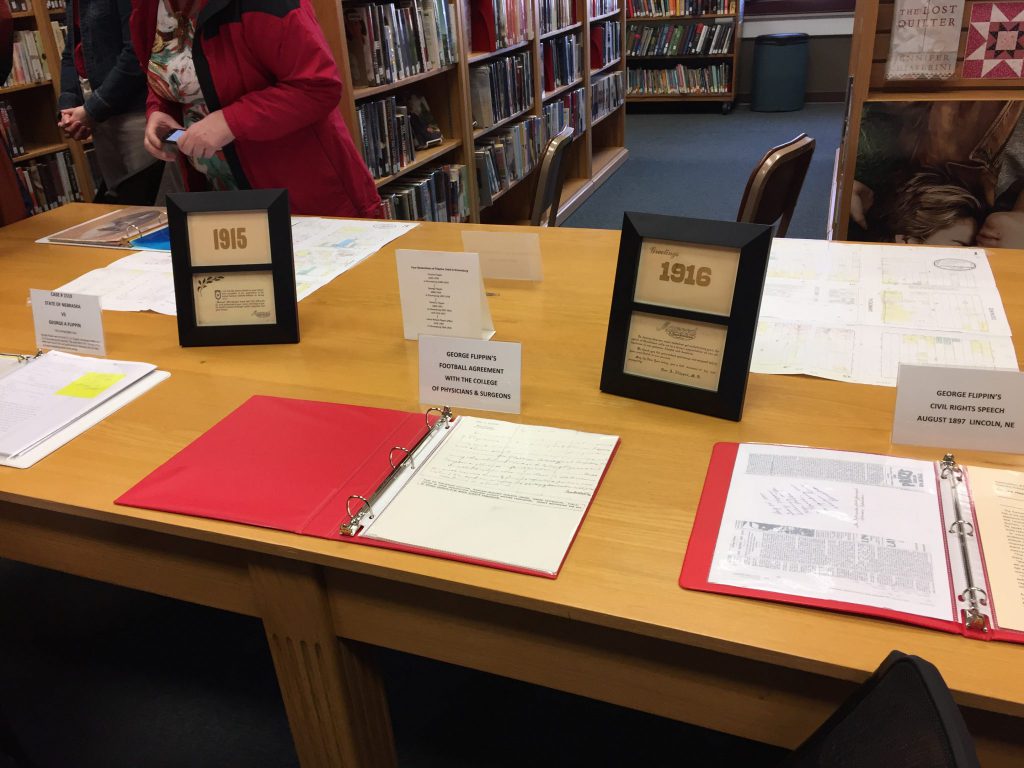I first heard about George Flippin when I was working as a para in Mrs. DeMers 4th grade class at Cross County. As part of their Nebraska unit, Kathy came out and did her presentation about George.
Since then, I’ve heard much about George Flippin. I am guilty of what Kathy refers to as the “eye glaze” sometimes when listening to more about George Flippin. I have not read the book, but have talked with Kathy many times during her writing and researching. I’m no expert, but I can give you the basics about George Flippin at least. Saturday, we celebrated George Flippin Day at the Stromsburg Public Library and I have to say, while listening to the speakers, my whole perspective changed. I’ve only ever thought of George in his context to this town. He was a doctor. He owned a chicken farm. He won shooting contests. He was arrested for voting in an election. He did not own the first car in Stromsburg.

It wasn’t until Larry Britt, board member for the Nebraska Black Sports Hall of Fame, spoke of how George Flippin’s determination to be educated opened doors for other young black men to be educated that I began to see him in a more complete way. Larry, and later, Preston Love, former UNL football player, both mentioned that because George broke the color barrier, other young black men had opportunities no one before them had.

It wasn’t until George’s great-great nephew, Gordon Harrod, spoke of George Flippin’s civil rights activities outside of Stromsburg that I saw him as an activist for his time. It wasn’t until Gordon read the words that the Friends of the Stromsburg Public Library had printed and hung above the archive unit in their entirety and gave the context of the speech, that I realized that a black man spoke words over half a century ago that still apply today. It really reminded me how long this struggle to “Recognize the majesty of the mind and not the color of the face” has gone on and wonder if we’ve made any progress.

George Flippin did many things that no matter the color of his skin would still have made him memorable. It’s the fact that he did all these things and never thought of letting the color of his skin stop him that made him remarkable.
New items at the library include, “The Prisoner” by Alex Berenson, “Wicked City by Beatriz Williams, “Lost City of the Monkey God” by Douglas Preston, “Kings Cage” by Victoria Aveyard, “A Book of American Martyrs” by Joyce Carol Oates, “What to Do With a Box” by Jane Yolen and Chris Sheban and “NOPE!” by Drew Sheneman.


